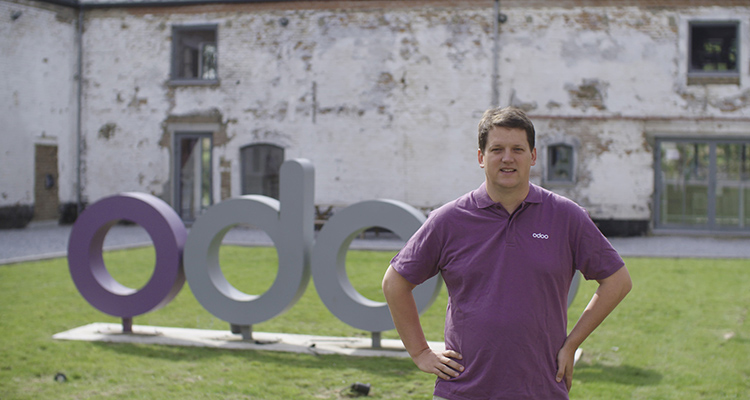New rules on crowdfunding entered into force on 1 February 2017. What is the framework and what does it mean for investments?

New rules on crowdfunding entered into force on 1 February 2017. The law passed in December by the Parliament now regulates the legal status of crowdfunding platforms and how they function.
"Crowdfunding is a type of participative financing that consists of requesting private investment to gather funds to finance a specific project through an internet platform."
In Belgium, in addition to direct investment, a tax reduction will be granted for any financing for an SME starting up, starter funds or financing vehicle. However the law does attach several conditions. For example, it is only possible to invest in companies founded less than four years ago. The investment must be made for a period of four years. The SME may only raise EUR 250,000 this way. Finally, each individual or entity may only invest a maximum of EUR 100,000 per year.
The Minister for SMEs, Willy Borsus, points out that SMEs make up the "backbone" of the economy, as they account for 99.2% of companies: "It is crucial to invest in these young companies, in these starters, and to support this type of system that is an addition to more traditional financial services."
Platforms may request authorisation
Since 1 February, platforms wishing to set up in crowdfunding have been able to lodge an authorisation request with the FSMA. Alexander De Croo, the Minister for the Digital Agenda, believes that with the authorisation of alternative financing platforms, "the system is now complete."
In concrete terms, a tax reduction is now granted for investments in the capital of a young SME of up to 45% for microbusinesses (10 employees per year and EUR 700,000 annual turnover) and 30% for SMEs.
The four ways to invest are:
- Direct investment in a target company (in stocks or shares, which has already applied since 1 July 2015);
- Investment in a target company through marketing on a platform (here, the investor is a direct shareholder in the company);
- Investment in a financing vehicle that then invests in a target company through a platform (the investor isn't a shareholder in the company, it is the 'vehicle' that remains the shareholder);
- Finally, investment in a starter fund that then invests in several companies (with risk spreading).
All the details are available on the FSMA website.
09.12.2024
Managing business uncertainty with BNP Paribas Fortis
Every entrepreneur will tell you that financial markets are unpredictable, entailing inherent risks. We provide tailored solutions to protect your business as you navigate these volatile markets.
Whether you’re a small or large business, operating domestically or internationally, one thing is certain: if you enter a market and do your utmost to grow your business, sooner or later there inevitably will come a time when you expose yourself to risks. Frédéric Raxhon, Head of FI Midcap Sales, BNP Paribas Fortis Transaction Banking, is our go-to expert. Here, he explains how BNP Paribas Fortis helps customers manage this uncertainty.
Raxhon knows how market volatility can impact the daily operations of small, medium and large enterprises. Thanks to his experience of working as a banker in corporate finance, shares and derivatives, and advising holding and listed companies, he understands how the market works like no other.
Raxhon: "We are keenly aware that price uncertainty, in the form of volatility on the financial markets, can have a serious impact on the operations and profitability of businesses. That’s why we constantly monitor the markets and their volatility: if prices fluctuate sharply, our customers run the risk of buying high and selling low. The past few years are a good example of what can happen, with a sudden rise in interest rates, an energy crisis with very volatile prices, and a sharp rise in inflation. We will continue to see volatility in these markets, due to geopolitical tensions and ongoing wars. However, elections can also cause volatility, as they often cause a change in economic policy. President-elect Donald Trump has already said that he will hike tariffs on goods coming from outside the U.S., which will have an impact on global growth and inflation. The transition to a more sustainable society because of the energy transition, however positive this may be, is also a source of uncertainty. Companies will be required to make significant investments, and it is not yet clear which technologies will prevail.
All of these factors show that companies need guidance in the form of a tailor-made solution to ensure that volatile markets minimise the impact on their operations so that they can focus on their core business."
Solution-oriented
The solution to this volatility comes from a partner who is a market leader when it comes to safeguarding national and international business.
Raxhon: "At BNP Paribas Fortis, this often means managing the risks of companies that have a number of straightforward wishes: they want to conduct business on a daily basis without unnecessary complications; buy at a stable price where possible; pay wages in a stable environment; sell to customers with a profitable, stable margin, and so on. If they experience market uncertainty in their business operations, we are there to advise them and suggest solutions in different scenarios. This can range from companies that want stability when buying or selling goods in another currency, to controlling fluctuating interest rates on current or future loans, or even creating a stable financial environment in which they can steadily pay their wages. We also hedge raw materials: companies that require large quantities of energy, metal, or wheat, for example – just a few of the commodities that are subject to price fluctuations – can rely on our expertise to turn their uncertainty into certainty. When companies are calculating their budgets for the coming years at the end of the year, assumptions about budgets and costs are a factor that future markets do not take into account. This, in turn, could lead to inconsistencies in business operations during the next financial year. We regularly suggest solutions for this, which inject trust into the entire process. We help entrepreneurs make their business more resilient to market fluctuations. Because at BNP Paribas Fortis, we are always focused on finding solutions, in any given scenario."
International intelligence
Belgian companies are increasingly expanding their horizons, which is why an international perspective is so crucial.
Raxhon: "Everything is intricately connected in the economic space. The energy crisis, for example, was not a national crisis. In Belgium, electricity prices were directly impacted by the drop in nuclear power production in France in 2022. The American elections have a direct impact on international business, with anxiety gripping investors and the markets. And I can give you many more examples.
Moreover, we expect this interdependence and volatility to continue for quite some time: there are a large number of economic and global trends that are feeding this uncertainty. And that is why it is so important that we keep up with developments in this uncertain global environment. At BNP Paribas Fortis, we rely on a global network of experts who are always on the lookout for the latest updates. Whatever happens and wherever it happens, there are always people from our bank on the ground who monitor the situation and provide us with real-time advice on how best to inform our customers. This network has proven its worth time and again, both for us and our customers."
03.08.2020
Odoo: supporting the growth of a company that’s breaking the mould
Very few Belgian companies can point to the kind of sparkling growth achieved by Odoo, a world leader in business management software for small and medium-sized firms. Underlines Odoo CEO Fabien Pinckaers: “We need a bank with real backbone. We count on BNP Paribas Fortis to support our development.” Watch the video interview.

In the space of barely fifteen years, Odoo has carved out a prime position in its sector. Basing its products and services on open source development, this young company, headquartered in the Walloon Brabant municipality of Ramillies, today does business on several continents and employs over 1,000 people worldwide. Odoo doesn’t do things the same way as other firms – and that includes its approach to banking.
BNP Paribas Fortis recently came up with solutions to two essential requirements for Odoo’s growth: carrying out a restructuring of its shareholder base; and making sizeable real estate investments in local farms in Brabant – one of the hallmark features of the company, which focuses a considerable part of its business there – plus also a major extension project at Louvain-la-Neuve.
Disruption
"Odoo is a disruptive company that tends to shake up the norms on all fronts. This prompts us to think about our business as bankers,” says Jean-François Pierreux, Odoo’s Relationship Manager at BNP Paribas Fortis. He points out: "The company has a positive attitude. It keeps moving forward, it sees the big picture, and it hires people. It’s also pursuing its impressive growth in spite of the health crisis. So it’s our job as bankers to find innovative solutions to the firm’s financial needs and provide them with real added value.”
28.05.2018
Simpler rules for VAT on e-commerce are one step closer
Europe is about to modernise the rules relating to VAT levied on goods and services sold online. The aim is to lighten the load on SMEs and turn the EU into a genuine "electronic single market". The first stage will begin on 1 January 2019.
Obligations associated with VAT applied inside the EU can sometimes be a real headache for companies trading within the Union's borders. While self-declaration payment rules for B2B trade are relatively simple to apply (providing the purchasing company has a valid VAT number), selling to individuals within the EU involves a more complex set of formalities. This is because companies that exceed the annual threshold of EUR 35,000 (in Belgium) must register for VAT in the country or countries of destination. According to European Commission estimates, this administrative obligation equates to an average annual cost of EUR 8,000 (per member state) for a company to ensure it complies with local VAT rules, making it costly for SMEs. This observation led the European Commission to put forward an action plan in April 2016, which was ratified by the European Council last December. What will the new rules change?
A new threshold for "digital services" from 1 January 2019
Brussels has a clear objective: it wants to simplify VAT collection from e-commerce companies in order to turn the European Economic Area into a genuine "digital single market". The primary beneficiaries will be companies that offer "digital services" to individual consumers anywhere in Europe (relating to video on demand, music or app downloading and the distribution of video games or e-books, etc.) Up to a new annual threshold of EUR 100,000, these companies can remain subject to VAT in Belgium, thereby avoiding all obligations in the other Member States.
The "one-stop shop" will gradually be extended
In addition, such digital services companies can already make use of the Mini One-Stop Shop (MOSS), a system which simplifies all cross-border VAT operations by allowing companies to make one single VAT declaration: this is submitted electronically in the company's country of origin, for all services in all other Member States. This portal therefore removes a large chunk of the administrative burden on firms. The good news is that this mini portal will be accessible to providers of all other types of services in Europe from 2019.
Distance selling of goods also to be covered from 2021
Companies whose business involves the distance selling of goods will need to wait until 1 January 2021 for the new EUR 100,000 threshold to come into force. But the other change is that the MOSS will also be opened up to these online retailers. There can be no doubt that access to this single portal is a real step forward that will, according to the European Commission, lead to savings of EUR 2.3 billion and increase Member States' VAT receipts by EUR 7 billion. It should also be emphasised that from 2019, micro-businesses with cross-border online sales of no more than EUR 10,000 can continue to apply the VAT rules of their home country.
The other priority: the fight against fraud
This package of new measures also aims to mount a more effective attack against a form of fraud that reportedly led to losses of more than EUR 152 billion across the EU in 2015. As a result, a new measure to take effect in 2021 will remove the VAT exemption on goods with a value of under EUR 22 imported from outside the European Union. This is because it was often abused by companies that exploited it to bring in goods of a higher value while evading payment of VAT in their country of arrival.
15.05.2018
Thinking of buying a property with your company? Take care!
We explain how stricter rules now apply to the "split purchase" of a property obtained via a company. This is a favourable fiscal arrangement for a company director, but one that must be approached with more caution than ever.

The "usufruct/bare ownership" structure
For several years now, the so-called mixed purchase (private/professional) of a property has been common practice for some company directors. This fiscally beneficial solution is based on the principle of "breaking up" full ownership of the property. On one hand, the usufruct is assigned to the company for a certain amount (proportion of the purchase price). This means that the company is entitled to use the property with no rental liabilities during a given period (generally between 20 and 30 years). On the other, the company director acquires bare ownership of the property, which allows him/her to retake full possession of the building once the usufruct has expired without paying a euro more.
The crux of the issue: the valuation of the usufruct
Where is the interest in this arrangement? It lies in maximising the cost to the company of acquiring the usufruct. This is because the larger the sum paid by the company, the smaller the sum the director has to pay at the time of purchase (not forgetting taxes, registration levies, indemnities, etc.). In addition, the company can deduct building/service charges such as withholding tax, maintenance and financial costs, and amortise the value of the usufruct over the agreed term. This is the best possible fiscal scenario, but one that has resulted in a certain amount of abuse at the point of the oft-mentioned "usufruct valuation". It is not by chance then that the tax authorities have been studying the issue for a few years now with a view to tidying things up a little.
The taxman turns the screw even more
Up until now, the authorities used a formula known as the Ruysseveldt formula to calculate the usufruct value, based on the discounted proceeds of gross rental yield for the duration of the usufruct term. However, this approach led to over-valuations, and so did not prove effective enough in the eyes of the tax authorities. This is why they recently decided to apply a new financial appraisal formula which is much tougher. In reality, this is the method already in place since 2016 to assess cases filed with the Service des décisions anticipées (SDA) (advance ruling service) of Federal Public Service Finance. It should be recalled that this service has established a "pre-filing procedure" for usufruct arrangements (used in advance of the official application) to ensure the future operation benefits from a certain degree of legal security.
The "advance ruling" formula is much less favourable
By changing its stance on the issue, the tax authorities could cause problems for some directors who have been too greedy. This is because the two formulae produce rather different results. Take this basic example of a property with a purchase price of EUR 500,000, for which the company acquired the usufruct at a cost of EUR 425,000 under the Ruysseveldt formula (85% of the price). In this case, the director has only paid EUR 75,000 for the bare ownership. Based on the authorities' new approach, the financial valuation of the usufruct would actually sit at around 60%, with bare ownership at around 40%. This means the individual would have had to pay EUR 125,000 more – an altogether different situation.
Handle with care
So any head of a company who wishes to be involved in this kind of operation will need to be more prudent than ever before. One of the most important things is to demonstrate that the arrangement genuinely reflects a financial logic. With this in mind, well-informed entrepreneurs will ensure they prove the property deal will profit the company, and will adequately evaluate the usufruct's value and term. Finally, we should emphasise that approval can be sought from the tax authorities via the fiscal ruling website.
